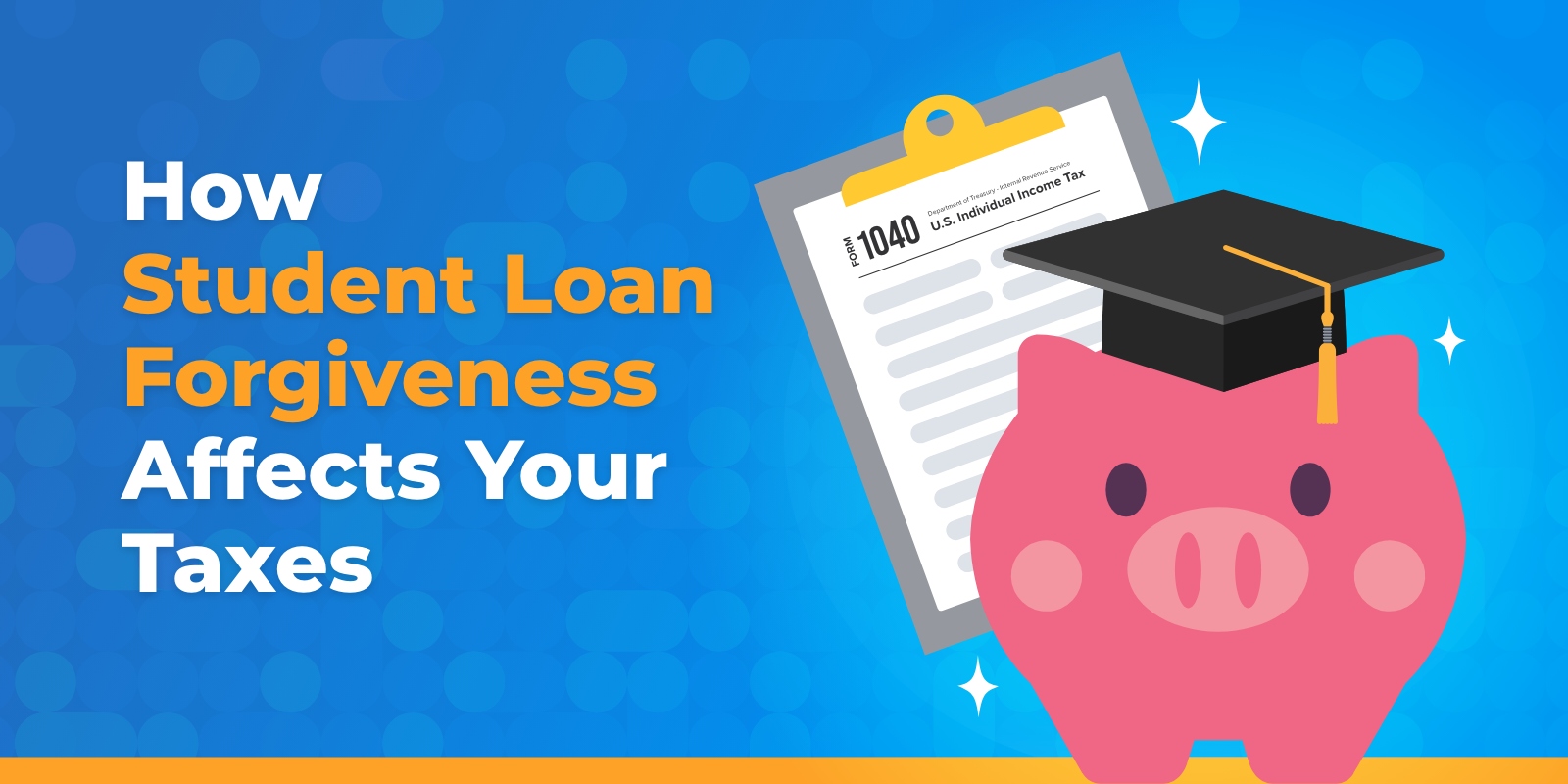How Student Loan Forgiveness Affects Your Taxes

Generally, student loan debt cancellation is considered taxable income. If you are one of the 43 million borrowers who will benefit from President Biden’s student loan forgiveness plan, you might be wondering how it will affect you. Here’s a quick overview of how student loan forgiveness affects your taxes.
President Biden’s Student Loan Forgiveness Plan
In August 2022, President Biden enacted a federal student loan forgiveness plan for up to $10,000 per borrower who earns less than $125,000 a year, or $250,000 if you file married filing jointly. The amount increases to up to $20,000 if you received a Pell Grant while in school. Forgiveness would be applied to those who submit a simple application to verify their income through the Department of Education. Borrowers on an income-driven repayment (IDR) plan would automatically receive loan relief.
In December 2022, the Supreme Court put the plan on hold as there are multiple lawsuits challenging the lawfulness of the plan. The Court will begin reviewing the plan again in February 2023. As of now, there are tens of millions of borrowers waiting to hear if their loans will be forgiven.
How Forgiveness Affects Taxes
As mentioned, forgiven debt is usually taxable income. However, Biden’s American Rescue Plan of 2021 included a measure that exempts forgiven student debt from being taxed through 2025. This means that the forgiven debt would not be subject to federal income tax. On the other hand, there are some states that have already announced their plan to tax the debt cancellation if it is found lawful by the Supreme Court. Those states include:
- Indiana
- Minnesota
- Mississippi
- North Carolina
- Wisconsin
If you live in one of the states listed above, you should plan to have your forgiven debt taxed as income. Since tax season has already begun and no debt has been cancelled, you may not have to worry about the taxation until 2024. However, this allows you greater time to plan accordingly. When the time comes, your forgiven debt will be added to your taxable income under Cancellation of Debt (COD) income. The exact amount forgiven is usually stated on Form 1099-C, so it is probably safe to assume that student loan forgiveness will work the same.
The taxes owed on the debt will depend on your income tax bracket. Indiana has a flat tax rate of 3.23% for 2022. Indiana residents may also have to pay county taxes. Minnesota’s income tax rates are graduated for 2022, ranging from 5.35% to 9.85%. Mississippi does not have state income tax on the first $5,000 of taxable income but has a flat rate of 5% for all taxable income over $10,000. North Carolina’s 2022 flat tax rate of 4.99% will result in a state tax liability for the cancelled debt. Finally, Wisconsin has a graduate tax rate ranging from 3.54% to 5.3% in 2022. Borrowers can multiply their income tax rate by the forgiven amount to find their state tax liability.
Tax Help for Student Loan Borrowers
If you live in one of the states that will tax student loan forgiveness, you can begin preparing now. The plan is still being reviewed by the Supreme Court which gives you extra time to put money aside for the extra taxes you will owe. In short, receiving up to $20,000 in student loan forgiveness can result in an unexpected state tax liability. If the debt is forgiven, borrowers are allowed to opt out of receiving loan cancellation through the Department of Education. The only exception is if you are one of the 8 million borrowers who will receive automatic loan forgiveness because you are enrolled in an income-driven repayment program.
These new changes can result in a more stressful tax season. Working with a qualified and dedicated tax professional can help ease the process. Optima Tax Relief has a team of dedicated and experienced tax professionals with proven track records of success.
If You Need Tax Help, Contact Us Today for a Free Consultation